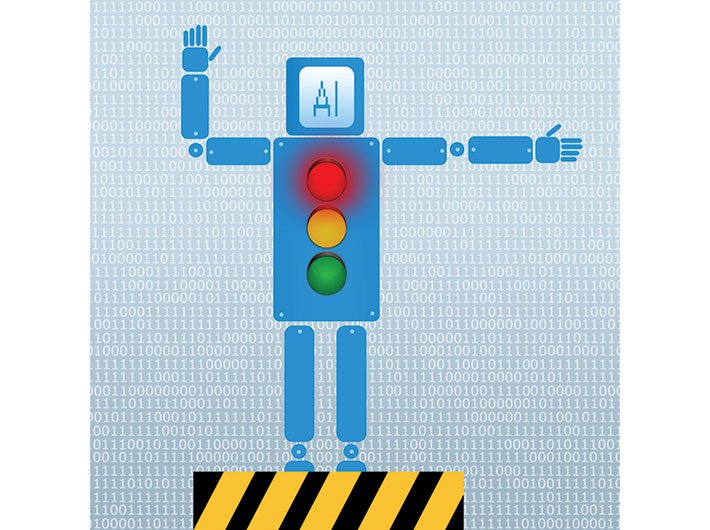It's doable in the near future, though more computing power than we have now will be required
In a J.G. Ballard short story called *The Subliminal Man*, the expressways have rubber studs, spaced progressively apart in the lanes for 40, 50, 60, and 70 miles per hour. The tyre treads and the studs intermesh to produce a smooth hum only if the vehicle moves at the exact lane speed. Driving faster or slower causes severe juddering, painful to the driver and passengers and harmful to the vehicle. The idea is high on wow quotient. But it belongs in the sci-fi imagination of the electromechanical 1960s.
Today, it is not impossible to imagine artificial intelligence as the overarching means by which traffic will be managed in the future. With digital sensors, governors, and GPS systems on all vehicles and roads, self-learning algorithms would process and respond to each situation. The vehicles, of course, would be self-driving. Futurists will agree this can easily be achieved. What's lacking is the enormous processing power required. Quantum computing could well make it available before the end of the 21st century.
Think
AI-based self-learning algorithms are already helping stock-brokers make money
. . .
It’s doable in the near future, though more computing power than we have now will be required
. . .
One of the biggest pains of city life will be alleviated
In a very broad sense and on a very small scale, aggregator services like Uber are already managing a pool of vehicles, handling payments, cab availability, rates per kilometre at different times of the day and different traffic flows. A similar process could easily be implemented in a small town. The traffic lights and CCTV cameras could be integrated into the system. Some amount of behaviour tracking to predict busy zones, traffic jams, risky drivers, and so on is to be accepted and allowed. If only to make for comfortable navigation and painless, economical, safer transport.
Indeed, the benefits could be many, even without driverless cars. There would hardly be any accidents. And if they happen, tracking systems would provide the evidence to determine the cause and who erred. Fines would be immediately deducted. Small penalties, such as withholding of parking rights, would be unerringly assigned. We would still need courts for awarding jail terms and suspension of licences for serious offences like drunken driving. But the details available to the court, the defence, and the prosecution would be flawless and of far greater forensic value.
By letting artificial intelligence manage traffic in small towns to begin with, we could prepare ourselves for a future of driverless cars and fully integrated city management systems. The smart cities that the government is pushing for might be good places to begin with. Equally, traffic in ultramodern business districts like the GIFT city near Gandhinagar, where eventually thousands of businesses will set up office in high-rises, could be managed using artificial intelligence. The immense amount of data these experiments generate can be analysed for behaviour trends and extrapolated to plan for growth.
Reality check
People are still beginning to adjust to the idea of artificial intelligence handling important aspects of their life, so few would be willing to submit traffic management altogether to lengths of code. There are aspects of privacy too, for people still don't want their behaviour recorded, even anonymously, whatever larger benefits that may bring about.
(This article appears in January 15, 2019 edition)



